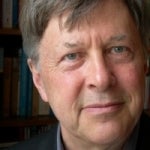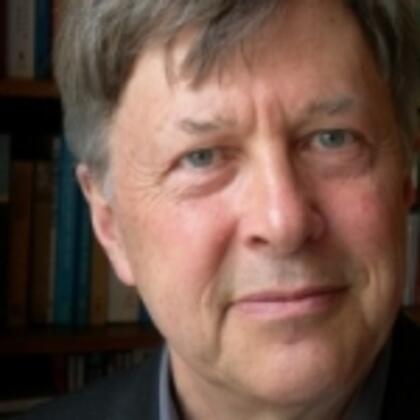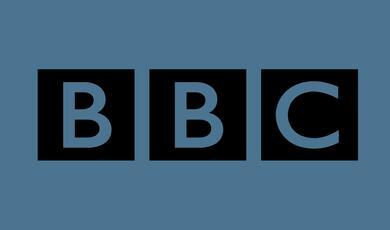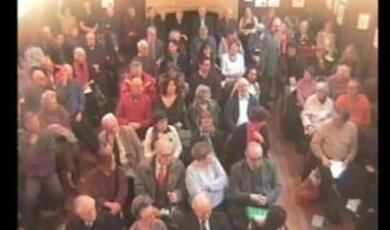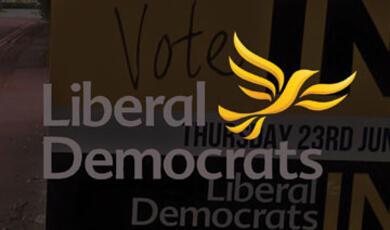The rich man in his castle, the poor man at his gate
Share
- Details
- Text
- Audio
- Downloads
- Extra Reading
Why was it argued that the poor could not vote, and conversely why has it been argued that democracy cannot allow its citizens to stay poor? The debate in Britain over the distribution of property: conservative, liberal, socialist, feminist and anarchist answers to the problems of property and politics.
Download Text
Professor Rodney Barker
Why was it argued that the poor could not vote, and conversely why has it been argued that democracy cannot allow its citizens to stay poor? The debate in Britain over the distribution of property: conservative, liberal, socialist, feminist and anarchist answers to the problems of property and politics. The high point of materialist stories of who we are, and their erosion
1*PICTURE
2*PICTURE
The rich man in his castle,
The poor man at his gate,
He made them, high or lowly,
And ordered their estate.
Mrs Cecil Frances Humphreys Alexander
1848
This long since omitted verse from 'All things bright and beautiful' is often quoted slightly derisively for the distance that is supposed to exist between the assumptions of the Victorians, or at least some of them, about social hierarchy, and our own. The relative positions of the rich man and the poor man were as immutable, natural, and God given as the purple headed mountains or the river running by.
God made them what they were, high and lowly, and ordered their estate
But there is an equally interesting assumption in the verse that is less noticed: rich and poor are synonymous with 'high' and 'lowly'. Social status is not only fixed and God given, but it is measured, equated with, determined by material wealth.
This skeleton in the cupboard verse of the hymn points out, in musical form, a defining characteristic of ideology in both the long and the short twentieth centuries:
It reveals the classification of society, the account of social identity, principally (not of course exclusively) in material terms, in terms of control over or access to material resources, in terms of wealth, property, land, houses, capital.
Left and right, radicals and conservatives, all in their various ways had a view both of how things were and of how they ought to be which, whilst it was in no sense one-dimensionally economic or material, gave first place to an economic and material dimension.
Marxism, socialism, and liberalism, as well as conservatism, all in their different ways saw property - the human control over and use of the material world - as the foundation of social life. Only feminism and to some extent anarchism had different emphases.
This didn't mean that money was all there was or all that was seen. Far from it. But material possessions were seen as the foundation on which everything else - culture, morality, citizenship - were to be built.
These assumptions were evident in the social research of Charles Booth which had been reported in his Life and Labour of the People in London.Between 1886 and 1903 his account was translated into what have become known as the Booth Poverty maps. Booth's descriptions of the streets and squares of London were colour coded accorded to his allocation of social class. Social class and poverty might seem pretty much simple objective categories. And so they were for the richest houses, those coloured yellow on the maps.
3*PICTURE
Yellow represented 'Upper-middle and Upper classes. Wealthy.', pink, further down the scale, 'Fairly comfortable. Good ordinary earnings.' While by the time you got to dark blue it was 'Very poor, casual. Chronic want.' But dark blue was not the bottom of the scale. That was black, and black stood for 'Lowest class. Vicious, semi-criminal'
In other words while the foundation was seen as material, the structure built on it was moral and cultural. Property, or its absence, was the essence of everything, and everything else flowed from it.
But whilst there is a pervasive assumption of the central or principal role of material wealth in constructing social order, there is a range of views on what follows from that observation.
All things bright and beautiful is clear enough: GOD ordered social status according to wealth.
Well, there may have been agreement that somebody ordered social status according to wealth, but there is less agreement as to who it was, whether it was fixed and unchangeable, whether it should be changed, and if so how and by whom.
But go back 200 years to an event which took place in the church of St Mary the Virgin in Putney in 1647. The Army Council of Cromwell's new model army, at the height of the Civil War, met to debate the constitution of the country of which they had taken control, and the argument was not simply about the formal structure of government, but about who counted politically and socially, what sort of a political community there should be, and how people were to to be valued and assessed. And, fundamentally, whether there should be a connection between wealth, and status and worth
4*PICTURE
The Putney debates engaged the crucial question of who should be considered part of the political community, who should be allowed the power and privilege of that membership which was expressed in voting. Henry Ireton, Cromwell's close ally and son in law, argued that only those 'who had a permanent fixed interest in the kingdom' should do so. In other words, membership of the political community depended on property. If you had property, you had a stake, you were a shareholder, and the political shape of the country should follow the contours of its economic shape.
But a very different view was taken by those known as Levellers who, as their name implied, argued for equality of all (or at least of all males). The words of one of their supporters, Colonel Thomas Rainborough, have become famous 'I think the poorest he that is in England hath a life to live as the greatest he.'
The Rainborough quote is interesting in its juxtaposition of greatness and poverty. It still, like 'all things bright and beautiful', equates wealth with status: poverty is contrasted with greatness. But unlike Mrs Alexander, Raiborough whilst observing the connection, questions it.
Raiborough equates wealth and greatness, and poverty and low status, as an account of how society is or seen to be. But he rejects that connection as justifiable, rejects wealth as a qualification for a monopoly of rights and respect, or poverty as grounds for exclusion from them. Rainborough does not deny the huge distinctions in wealth, but he does very precisely call into question the 'high' and 'lowly', and whether any distinctions of esteem should follow from distinctions of property
These two statements provide the alternative ways of looking at wealth and poverty.
On the one hand, as 'natural' or certainly not to be changed, so that the advantages which flow from wealth are and should be unequally distributed, and wealth is a proper measure of human worth, or a proper indication of what kind of worth we should expect to find.
On the other hand, is an insistence either on equality, or of some measure other than wealth, and therefore of equal rights to enjoy what had previously been the privileges of wealth. Much of the debate within the ideology of the 20th lay between these two:
How far should wealth be considered the measure of other things: social worth, political rights
And if it was not to be the measure of social and political worth, what followed in terms of politics, in terms of voting and participating in the political life of the country, what, if anything, was it proper to do when those rights and opportunities were not accessible to all
And if whilst political and social worth ought not to depend on wealth, practically it did so, how far was it desirable or allowable to act in order to redress not just political and social inequality, but material inequality? How far was the 'life of the poorest he' entitled to be assisted not just socially and politically, but economically and materially?
Was it a matter of treating everyone with equal respect whatever their wealth, or should wealth itself be redistributed to remove the material foundation of inequality?
These question had become visibly important by the arrival of the long 20th century somewhere around the 1880s. There was a recognition that something had changed, that there was not just government, but a state as a distinct institution, standing above society, and separate from society's hierarchies. So on the one hand the state was seen to be more than or different from a simple governmental extension of social and economic status and hierarchies, while on the other its relative independence placed responsibilities on it for the well being of all.
This occurred at a time when ordinary people were socially visible to a new extent. The growth of towns, the development of a nation which was urban rather than rural so that already by the 1851 census over half the population of Britain lived in towns or cities, created a new relationship between the political class and 'ordinary people'. Ordinary people were now in the same place as their rulers, even though they were in the less salubrious parts of the growing towns.
Social division continued, but within towns and potentially more visible and more intense. Differences in wealth were not just observable to social researchers such as Charles Booth. They were visible to anyone who walked down a street.
And human juxtaposition meant that cholera and typhoid equalised life.
Urban closeness made differences much more visible, but their consequences much more deadly
This raised three related problems:
1. What were the connections between fitness to be part of the political community, and property?
2. Who were the people, and who should count as part of them for defining the political community?
Worth remembering that what we may now take for granted, one person one vote, did not fully arrive until almost the mid point of the last century with the final abolition of plural voting in 1948..
3. What was a proper response to the condition of the people.
Different answers were given to these questions by different ideologies and different thinkers. But faced with the very visible distance between those who possessed considerable wealth and those who possessed very little or none, there were a range of responses.
5*PICTURE:
Remember these are all ideal types, the ingredients of real ideologies, not their actual finished, and hybrid, character. Many interesting and important thinkers will not fit, or will sit astride several boxes
Distribution of
wealth/property
Political order and Social conditions
Natural or the natural result of markets
Amendable, contingent, the result of human choice
Natural or the natural result of human nature
1. Elitism. Sir Henry Maine, Bagehot. Keep democracy in check.
4.No one!
Amendable political order but not social conditions
2. Accept democracy, but don't interfere with property or social conditions : Mallock, Economic Liberalism, Hayek
5. Reform liberalism, equality of political opportunity through reform of franchise and property laws and ending of privileges, tax reform, economic fairness
Amendable political order and social conditions
3.Toryism/ noblesse oblige. Don't interfere with property, but use private and public power to ameliorate distress
6 Intervene to alter distribution of resources to promote equality of opportunity, or more radically to redistribute wealth and resources Socialism/social democracy, but also, and more radically, feminism
1. Ordinary people do not have many or any material goods, and this is related to their relative low quality in comparison with those who do enjoy wealth. There is either a divinely ordained or a naturally occurring inequality, which should be respected. This is not inconsistent with a belief in the possibility of a career open to talents. But such opportunity will be the result of natural selection. Therefore including the whole population in the political community by extending the vote was wrong and dangerous, since they would use it simply to plunder, or would misuse it through either ignorance or irresponsibility. In other words, the poor should not vote or if they did their voting should be formally or informally strictly controlled or led by their betters
This was the old elitist response:
Sir Henry Maine, Popular Government in 1885:
The existing division of society was in terms both of wealth and worth, and the minority were an elite of both property and creativity, whilst the mass of the people were, always had been, and always would be, a drag on progress:
'All that has made England famous, and all that has made England wealthy, has been the work of minorities, sometimes very small ones . . . if for four centuries there had been a very widely extended franchise and a very large electoral body in this country, there would have been no reformation of religion, no change of dynasty, no toleration of Dissent, not even an accurate Calendar . . . the gradual establishment of the masses in power is of the blackest omen for all legislation founded on scientific opinion, which requires tension of mind to understand it and self-denial to submit to it.'
The division was intimately related to property and to the proper use of property. If the masses were given political power, they would use it for legalised pillage. The pillaging characteristic of democracy would destroy the basis of prosperity. The kinds of taxation on which a democracy would be likely to insist would kill the motive for creative work and would destroy or deaden, by taking their fruits, 'the springs of action called into activity by the strenuous and never ending struggle for existence, the beneficent private war which makes one man strive to climb on the shoulders of another and remain there through the law of the survival of the fittest'
Giving power to a democratic citizenry would be like inciting mutiny on the ship of state:
'If the mass of mankind were to make an attempt at redividing the common stock of good things, they would resemble, not a number of claimants insisting on the fair division of a fund, but a mutinous crew, feasting on a ship's provisions, gorging themselves on the meat and intoxicating themselves with the liquors, but refusing to navigate the vessel to port.'
Walter Bagehot writing at the time of the Reform Bill of 1867 which extended the franchise a little, but still in terms of property, stressed the need for a dignified front for the common people who are incapable of understanding complex issues, and certainly have no grasp of economics.
But something of this view continues. A leading article in The Independenton September the 11th 2008 declared:
'the country's biggest social blight today is an entrenched group of families and individuals at the bottom of the social pile who are failing to participate in the economic opportunities available in modern Britain.
Generations are being brought up on sink estates mired in welfare dependency, drug abuse and a culture of joblessness. And the majority of children born in such wretched circumstances are simply not making it out later in life. This is not a class problem; it is an underclass problem. And it is the failure of these sections of society to get on that is responsible for the fact that social mobility is in decline.'
2. Votes, but then guidance and leadership by an elite
Political reform conservatism,
W. H. Mallock, a conservative writer in later years of the nineteenth and the early years of the twentieth century. For Mallock wealth flowed naturally, if left unmolested, to the most appropriate places. In his 1893Labour and the Popular Welfare and his 1908 A Critical Examination of Socialism he took issue with Marx's labour theory of value in a way which justified the 'naturalness' of economic inequality
Worth remembering that the influence of influential thinkers is not necessarily on those who agree with them
And of course Marx was the great problem for those who were not on the left even though, paradoxically, they shared many of his essential perceptions
Directive ability the one factor that Marx ignored
Markets are efficient, and constantly adjust rewards and competence
And just as elites were natural and necessary in the economy, so they were in government and politics, where directive ability was also the key . So voting is safe, but leave property alone
A theme continued throughout the 20th and taken up by Enoch Powell after the Second World War, with markets as a continual democratic vote. In 1968 Powell wrote that:
'The market decentralizes power right down to every individual consumer, so that a grand, continuous general election is in progress the whole time, a vote being cast whenever a share or a security or an article or a service is bought and sold. This is an economic democracy in which there are no privileges - everybody's dollar is as good as everybody else's dollar - and where the mightiest of corporations and capitalists have had to bow to the collective wishes of the humblest citizens.'
It might be necessary for economic efficiency and public peace for government to take responsibility for the material well being of the people, but there was not moral obligation to do so. Powell notably interpreted the injunction in New Testament scripture to care for the hungry, the sick, and the homeless as applying only within the church
F. A. Hayek similarly argued for the fundamental importance of property:
His The Road to Serfdom published in 1944, was an attack on social democracy - he dedicated it to 'the socialists of all parties' - as a threat to an economic liberty, in other words letting the economy run without interference or regulation, and accepting whatever distribution of wealth there happened to be - where economic patterns were considered to be the foundation of political and social ones.
It was ironic that a liberal opponent of the tradition in which Marx was the most prominent contributor, should share such a fundamental assumption about how societies worked, with Marx.
3. Noblesse oblige for both individual and state. Inequality is the natural result of human nature, and should be respected. But its more severe material consequences might be and should be ameliorated by individual charity and some public or state charity
This was tory paternalism: Improve the condition of the people, either from philanthropic or tactical motives:
Lord Hugh Cecil in Conservatism published just before the First World War in 1912 argued that the people could be educated into responsible citizenship, and organisation such as trades unions were a useful means of doing this.
But justice required not, as some socialists were arguing, a coerced redistribution of property, but refraining from harming others, and one of the more fundamental ways in which others might be harmed was by harming their property
5. Sever the link between property and status, and amend the legal framework within which property operated, since the distribution of property was always the result of the legal and other structures which people chose to construct in order to shape and regulate things.
Abolish or reform legal structures which facilitate or preserve unequal access to material resources. End privileges and monopolies, legislate against trusts
Opportunity liberalism: T. H. Green, a liberal theorist and philosopher, argued in his 1886 study of Political Obligation for public action not to redistribute property, but by the provision of educational opportunities and the end of legal privileges or constraints in relation to property, for an opening up of the possibilities for those who were anyway entitled to citizenship, to fulfil their potential for a full life
6a. Compensate for the consequences of material inequality. In order for the poor to vote effectively, intervention is needed in social services
New Liberals of the years before the First World War, of whom the most prominent was the social theorist L. T. Hobhouse:
Equal liberty requires equal resources to practice that liberty, and so public action should be taken in terms of the provision of education and health, and the regulation of the conditions of work, in order to reduce the inequalities of social and economic circumstances under which ordinary citizens suffered, and so to enable them fully to participate in the life of society
Social democracy, In 1956 Anthony Crosland published what at the time was a rather controversial book on The Future of Socialism. Equality required active state responsibility and intervention, particularly in education and welfare to ensure that everyone had the maximum opportunity to flourish
Crosland described a continuing importance of wealth but a diminishing monopoly of class with the disappearance of class as an observable material dimension of social differences. The move from walking and carriages, to mass produced cars, the democratisation of clothing
Status and power were linked to wealth, but distinct from it, and a social democratic society would, through welfare, education, and a degree of income distribution, cultivate a society where privilege, in the sense of unjustified rewards simply for being rich, would be eroded or abolished
6b. And the most radical is the bottom right hand of box 6, an intervention not only to go beyond the consequence of material inequality, but to reduce material inequality.
In order for the poor to vote, they need to be made less poor, and to be given greater control either individually or collectively over material resources
This was a part of the argument of the economic historian R. H. Tawney, for whom what mattered was not just making the poor less poor, but giving ordinary people the same kind of control over economic resources that was currently enjoyed by only a minority. For that to happen not only would there have to be income redistribution, but a change in the control of work itself and the resources it used: workers control was for Tawney an extension of the principle of professional responsibility which a professional elite already enjoyed.
With feminism there was an even more radical departure from the elitist position on property. All the arguments and proposals so far treated the economy, the world of property, as something which did not include the household or the home. It was a matter for the public world, not the private one, and there was an implicit sense that they were distinct and different things.
But in arguing that what went on in the household was as much a part of the economy as what went on in the factory, the workshop, the stock market or the office, feminists were crossing or abolishing the division between the public economy and the household economy which the development of industrialism had established. The argument over the private/public divide goes some way not to criticise or amend conventional notions of property, but to dismiss or transcend them.
Households were places where the control and exchange of property as the characteristic feature of the economy didn't work, or if it did, worked in such a different way that even what was meant by 'economy' and 'property' would have to be re-thought.
Anarchism: Herbert Read described production as a creative act rather than as a means of material accumulation, another subversive take on conventional ideas of property, markets, and economic life cf Morris
From property to persons
Both feminist and anarchist accounts of what was going on were moving the debate from persons defined by property to persons defined in terms of status or function or creativity.
By the time we reach the twenty first century there is the presence of a different emphasis.
Money and the control of property has not stopped being important.
At a global level the control of and competition for material resources - oil, water - has intensified. But the identity of the players is now differently defined.
The end of the short twentieth century from 1917 to 1989 did not bring thinking about people in terms of property based class to an end. Nor were non-material accounts of people absent from those years. And they had been just as much a feature of the long twentieth century, and that is perhaps still with us. But an account of politics and society in terms of material/money/property/wealth based groups or layers is no longer the only or the dominant account of political life. We certainly don't live in post-material times. But we do live in times where the simplicities of a material understanding of social life have been worn at the edges, torn in the middle, and found no longer quite to fit as well as they did.
If property is either thought not to be the indicator of social and political worth, or more radically if it is thought necessary or right to redistribute property as part of valuing all people equally, that doesn't get rid of the question 'how are we to define people, in terms of what public and group identities'. The move from property to equality of all who are simply 'there' simply raises a new question of how to define who 'all' are, and once that questions is asked, human identity replaces property ownership.
Tearing up the old maps, or finding that they have fallen to pieces, doesn't remove the need for maps, it simply leads people to start sketching out new maps. Talk of multiculturalism is one of many attempts to come to terms with this. Paradoxically, once property, wealth, the control of material resources is either equalised or discounted as an essential way of classifying people, other features of life are swiftly utilised to construct public identities. The usefulness of collective categories, them, us, the others, seems very persistent.
So long as 'who are you' and 'who am I' are not just personal and private questions, maps will always be drawn, and when property is ousted, there will be contenders a plenty, from religion to ethnicity, ready and eager to take its place.
©Professor Rodney Barker, Gresham College, 9 December 2008
This event was on Tue, 09 Dec 2008
Support Gresham
Gresham College has offered an outstanding education to the public free of charge for over 400 years. Today, Gresham College plays an important role in fostering a love of learning and a greater understanding of ourselves and the world around us. Your donation will help to widen our reach and to broaden our audience, allowing more people to benefit from a high-quality education from some of the brightest minds.


 Login
Login
